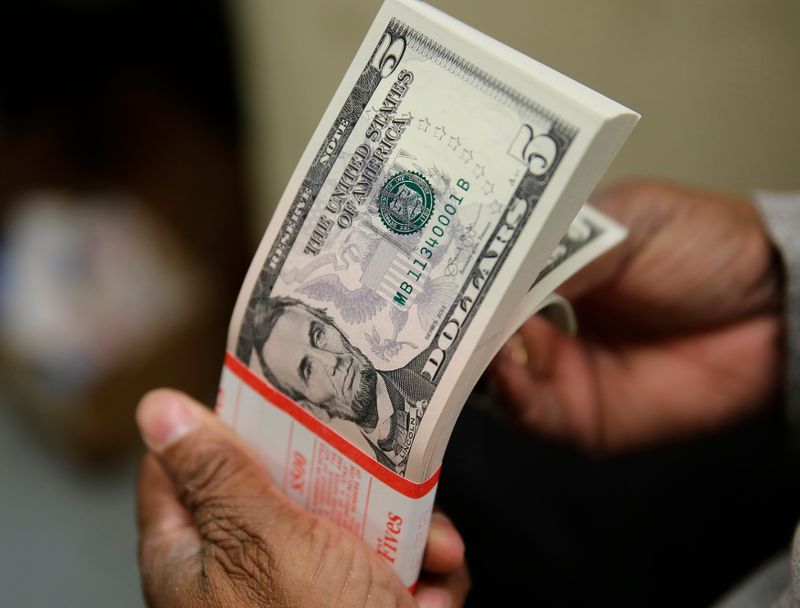By Hannah Lang
WASHINGTON (Reuters) – The dollar slipped on Thursday with investors on edge at the end of the year as initial optimism over China’s reopening fizzled out and as markets processed a readout of U.S. jobless claims.
Markets are weighing the impact of China’s rapid loosening of its strict COVID-19 rules with a surge in new infections.
“China is one of the keys I think to 2023 and what happens to the global economy,” said Chris Gaffney, president of world markets at TIAA Bank.
Following China’s removal of its quarantine rule for inbound travelers from Jan. 8, the United States, Japan, India and other countries said they would require COVID tests for travelers from China.
“If they can bounce back from the dramatic slowdowns that we’ve seen, that helps the overall growth on the global scale, but on the other hand, it could also lead to higher energy demand and more demand means higher prices,” said Gaffney.
After hitting a one-week high against the yen on Wednesday, which saw the dollar touch 134.40, the greenback hit a session low against the yen on Thursday. The dollar last fell 1.1% against the yen to 133.005.
The dollar also fell against the Swiss franc to as low as 0.9208, the lowest level since March 31. It was last down 0.71% against the Swiss franc at 0.922.
Against a basket of currencies, the U.S. dollar index fell 0.479% to 103.840, having climbed 0.18% in the previous session.
That drop may have been a reaction to fresh U.S. jobless claims numbers on Thursday, said Steve Englander, head of G10 FX research at Standard Chartered (OTC:SCBFF).
The Labor Department found that the number of people receiving benefits after an initial week of aid rose to 1.710 million in the week ending Dec. 17. Those so-called continuing claims, a proxy for hiring, have drifted higher since early October.
“Historically, when you have that pace of increasing continuing claims, it’s been an early signal of a downturn,” said Steve Englander, head of G10 FX research at Standard Chartered.
But analysts warned against reading too much into price moves amid low trading volumes as markets head into the new year.
“It’s the end of the year and there are liquidity issues and so on, so the market may be reacting more to incoming data than it would under normal liquidity circumstances,” said Englander.
Investors are likely eager for the fresh information that 2023 will bring, said Craig Erlam, markets analyst at currency platform Oanda.
“We very much appear to be in drifting mode, awaiting the turn of the year when traders return and we can get the latest thoughts from policymakers and the most up-to-date data,” he said.
Sterling rose 0.42% against the dollar to 1.207 after slipping 0.11% the previous day.
The aussie rose 0.70% versus the greenback at $0.678, while the kiwi rose 0.68% against the dollar at $0.635.



